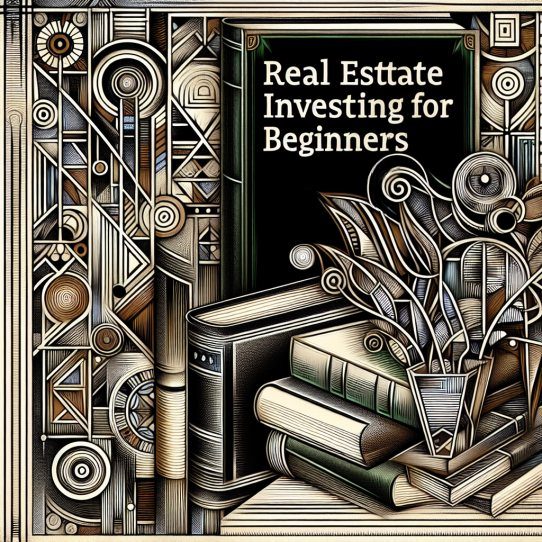
Real Estate Investing for Beginners with No Money: Achievable with Effort
April 15, 2024
Introduction
Real estate investing has long been a path to financial freedom and wealth accumulation. The allure of passive income, long-term appreciation, and tangible assets attracts many aspiring investors. However, a common misconception persists that significant capital is required to enter the world of real estate investing. While having cash reserves is undoubtedly advantageous for navigating unforeseen circumstances, “Real Estate Investing for Beginners with No Money” is not only possible but achievable with dedication and strategic planning.
Historical Context: Real Estate Investors Through the Ages
To understand the evolution of real estate investing, it is essential to examine its historical context. The earliest recorded property transactions date back to ancient Mesopotamia, around 2000 BC, when the Code of Hammurabi established property ownership laws. In ancient Greece and Rome, rental properties emerged, and Roman law laid the foundation for modern real estate practices. During the Middle Ages and the Renaissance, feudalism shaped land ownership, and influential families like the Medicis built their wealth through real estate investments. In the 20th and 21st centuries, events such as the Great Depression and the rise of modern real estate moguls like Donald Trump and Sam Zell further demonstrated the enduring power of real estate investing.
Expansion of Real Estate Concepts Over Time
The concept of real estate has evolved significantly from its early days. In ancient Mesopotamia, land was a critical asset. Around 3000 BC, the development of writing, such as cuneiform, enabled the recording of property transactions and ownership, which was crucial for the administration of land and the establishment of complex societies. This period marked the beginning of formal investment in land, which was primarily the privilege of the elite.
As civilizations advanced, the strategic importance of location became increasingly recognized. The Sumerians, for instance, capitalized on their geographic positioning to enhance their economic strength, investing in land near vital trade routes and waterways, which maximized their trade and agricultural potential. This early understanding underscores the timeless principle in real estate that “location, location, location” is key to maximizing investment returns.
In the Roman era, real estate development took on new dimensions with the empire’s expansion, leading to the establishment of cities and the construction of monumental structures, which were both a display of power and a means of economic control. The Romans also introduced legal frameworks that further defined property rights, laying the groundwork for modern real estate law and market practices.
By examining these historical developments, we can see how economic needs, strategic considerations, and legal frameworks over millennia have shaped foundational concepts in real estate. This historical perspective not only enriches our understanding of real estate investment but also highlights this field’s continuous evolution and adaptation to meet the changing economic and social landscapes.
Strategies for Investing in Real Estate with No Money
Several strategies exist for beginners with limited funds to embark on their real estate journey. **House hacking** involves living in one unit of a multi-unit property while renting out the others, allowing investors to offset mortgage payments with rental income. **Partnering with like-minded investors** and pooling resources can also provide a pathway to ownership, with responsibilities and profits divided among the partners. **Seller financing**, where the seller agrees to finance the purchase, can be an attractive option, although it has its own advantages and disadvantages. **Lease options**, which involve renting a property with the option to purchase, enable investors to build equity while testing the property before committing to a purchase.
Purchasing low-cost properties is another viable strategy for those starting with minimal capital. Properties in the price range of $35,000 to $55,000 can offer consistent returns due to the strong demand for affordable housing. This approach demonstrates that lower-cost investments do not necessarily mean below-average returns.
Real Estate Investment Trusts (REITs) offer an alternative for individuals looking to invest in real estate without the hassle of property management. REITs allow investors to buy shares in commercial real estate, such as malls or office buildings, and receive income from the properties without directly managing them.
Real Estate Syndications are another method where money is pooled from multiple investors to buy a real estate asset, typically more expensive properties like multifamily units. This allows individuals to participate in more prominent real estate investments with smaller amounts of capital.
These strategies highlight the diverse approaches available to beginners in real estate investing, even those with limited or no initial funds. By leveraging options like low-cost property investments, REITs, and real estate syndications, individuals can start building their real estate portfolios and gain experience in the market.
Building a Strong Foundation: Education and Networking
For aspiring real estate investors, particularly those pursuing “Real Estate Investing for Beginners with No Money,” building a strong foundation through education and networking is paramount. Investing in oneself through continuous learning and forging connections within the industry can open doors to opportunities that may otherwise remain closed.
Attending workshops, seminars, and webinars hosted by experienced investors and industry experts is an excellent way to gain knowledge and insights. These events often provide valuable information on market trends, investment strategies, and real-world case studies. Aspiring investors can learn from the successes and failures of others, helping them make informed decisions and avoid common pitfalls.
Networking is equally crucial for beginners with limited funds. Building relationships with mentors, partners, and industry professionals can grant access to valuable resources, opportunities, and support. Successful real estate investors often attribute their achievements to the guidance and support they receive from their network.
Sam Zell, a prominent real estate mogul, is an excellent example of the power of education and networking. Zell, known as the “Grave Dancer” for his ability to identify and invest in distressed properties, credits his success to his continuous pursuit of knowledge and his extensive network. He frequently attends industry conferences and events, using these platforms to share insights and connect with other investors and professionals.
Another notable real estate mogul, Barbara Corcoran, also emphasizes the importance of education and networking. Corcoran, who built a multi-million dollar real estate empire from scratch, attributes much of her success to her willingness to learn from others and her ability to build strong relationships within the industry. She often advises aspiring investors to seek out mentors and surround themselves with individuals who have achieved the success they desire.
By prioritizing education and networking, aspiring real estate investors can lay a solid foundation for their journey, even with limited financial resources. Continuously expanding one’s knowledge and cultivating a supportive network can lead to valuable insights, partnerships, and opportunities that can propel beginners towards their goals in the world of real estate investing.
The Importance of Having Cash Reserves
While “Real Estate Investing for Beginners with No Money” is feasible, it is crucial to recognize the importance of having cash reserves. Unexpected repairs, maintenance, and vacancies can strain even the most well-planned investments. Budgeting for emergencies and maintaining a cash cushion is essential for weathering economic downturns and market fluctuations. During decreased rental income or market shifts, liquidity becomes a valuable asset, allowing investors to seize opportunities and mitigate potential losses.
Timing the Real Estate Market
Timing the real estate market is another critical aspect of successful investing. Understanding the four phases of the real estate cycle—recovery, expansion, hyper-supply, and recession—can help identify opportunities and make informed decisions. Utilizing mass psychology and consumer sentiment can provide valuable insights into market trends. Recognizing when to buy and sell based on market psychology can significantly impact an investor’s success. Case studies of investors who effectively timed the market, such as John Paulson during the subprime mortgage crisis, offer valuable lessons and inspiration.
Conclusion
In conclusion, “Real Estate Investing for Beginners with No Money” is an achievable goal, but it requires effort, dedication, and a willingness to learn. While cash reserves are advantageous, strategies such as house hacking, partnering with investors, seller financing, and lease options provide entry points for those with limited capital. Understanding the importance of cash reserves, timing the market, and learning from successful investors are essential components of a well-rounded investment approach. Aspiring real estate investors should know that they can overcome financial barriers and build a prosperous portfolio with the right mindset, strategies, and perseverance. The path to real estate success may not be easy, but it is undoubtedly worthwhile.
Other Reads
Zero Percent Mortgages Debut: Setting the Stage for Next Bull Market
Brexit’s Currency Wars: Hidden Theme for Financial Freedom
Surviving the Bear Stock Market: What’s New for Investors?
Fed Interest Rate: Negative Rates Are A Game Changer
What Economic Recovery? Most Americans Lack $1000 In Savings
Federal Reserve Interest Rate: Dangers & Benefits of Negative Rates

Why Are Interest Rates So Low: Coronavirus That’s Why
CAT Stock Price Projections And Future Trends
Why own gold in uncertain times: Protection From Disaster
HD stock quote And future price trends
Valeant Shares Slump

End Of Bull Market: Masses Worry Higher Rates Will Kill This Bull
Why Global Warming Is A Hoax & How Oil Giants Are Feeling The Heat
Nuclear Waste Management Market
Commodities Increased in April
Why is investing in a mutual fund less risky than investing in a particular company’s stock?


